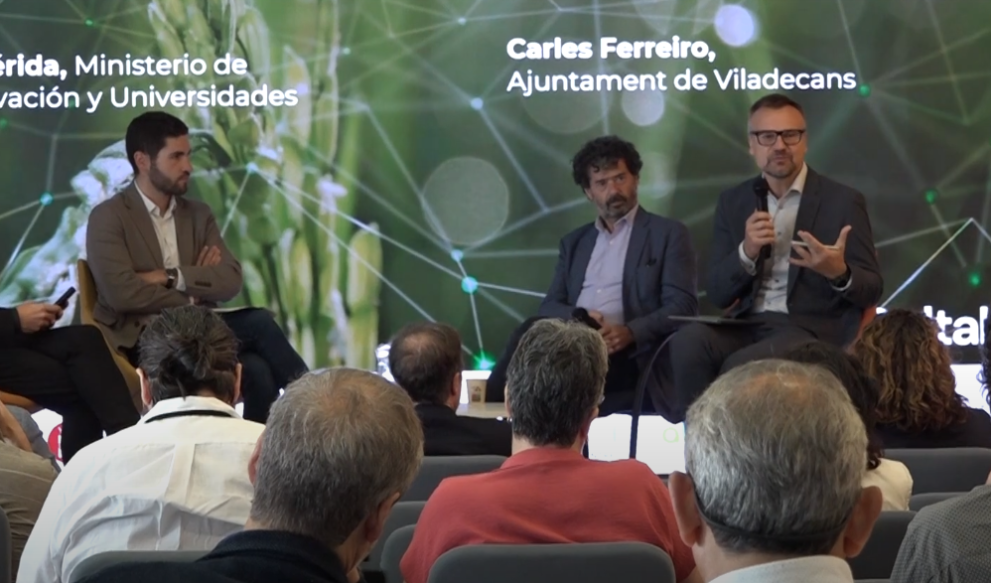
This time, we spoke with Michał Miedziński, from the Joint Research Centre, facilitator of the Increasing Global Food Security Experimentation Journey. This journey brings along the experience of Ahiler (TR), Ankara (TR), Azores (PT), Catalonia (ES), and Malta.
Could you give some examples of challenges linked to food security that regions across Europe are facing?
Ensuring food security is a systemic and complex challenge. Access to healthy, affordable and sustainable foods depends on diverse and interconnected trends.
They range from adverse environmental trends, such as climate change, soil degradation and biodiversity loss, economic issues, such as food affordability and dependence on imported foods, and social problems, including rapid urbanisation and difficulties to attract young people to take up farming jobs. Food security is also increasingly threatened by geopolitical risks that make food imports and exports less predictable. This is also a challenge with many controversies and difficult choices which require evidence-based conversations and careful deliberation.
This is a global challenge that affects all European regions, cities and rural communities. The territories involved in the food security Experimentation Journey face different local food security challenges, but all seek innovative ways to become more self-sufficient and resilient to external challenges. We will soon share more about their experience.
We have mentioned already the concept of “Experimentation Journeys”, but in your own words, what are these in the context of the EU Preparatory Action?
Experimentation journeys are challenge-oriented policy learning processes that offer territories an opportunity space to explore and co-design innovative ways to address their local challenges in a close collaboration with other territories and JRC. The journeys are well suited for policy entrepreneurs who actively seek opportunities to implement transformative innovation policies.
The journeys are designed to bring value to individual territories and yield relevant lessons and policy tools for EU policies through collaborative approach and the active engagement of JRC. They are relatively short episodes in long-term processes of policy development and regional transformation. These episodes, however, can become a unique opportunity for policy makers to co-design and test explorative approaches with like-minded policy practitioners and JRC experts.
This initiative uses a ‘place-based approach’ in relation to the EU innovation policies. What are the links between tackling food security in a specific region, the EU and its wider global dimension?
Food security is a multi-scalar challenge. This means that to address it effectively many actors need to act across different scales and governance levels. Place-based approach is fundamental for developing effecting ways to addressing global and local food system challenges.
First, place-based approach calls for improving our understanding of how global food security challenges manifest themselves in different places, including systemic mapping, anticipating and measuring key dynamics behind regional food system vulnerabilities and risks. Second, it helps to understand the role of different regions and places in satisfying their own needs and their role in providing food and agri-food knowledge to regions in EU and beyond. Finally, with a systems lens, one can identify leverage points for strategies and policies aiming to improve food security across EU, many of these points are the local level or require geographical focus.
Place-based approaches are a necessary dimension of the EU, national and regional policies. The challenge is to ensure that place-based policies both respond to local food security challenges and help improve EU and global food security.
Putting different territories, with different circumstances, to work together is a challenge per se. How do you work to find a balance between collaboration and finding a solution that adapts to every circumstance?
Ensuring balance between generalisable and place-specific dimensions of experimentation journeys can be a source of tension. Together with our partners from Climate-KIC, ERRIN and Eurada we designed the journey to respond to both individual needs while yielding generalizable lessons for other territories and EU policies.
On the one hand, collaborative exercises and bilateral meetings with journey facilitators allow the participants to draw relevant lessons for their specific context. As the same time, the use of shared frameworks – such as theory of change - and collaborative tools to frame discussions allows to identify common elements and draw lessons for other territories and EU policies.
Details
- Publication date
- 11 July 2025
- Author
- Joint Research Centre
